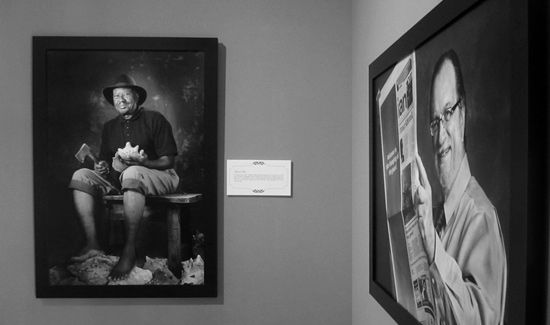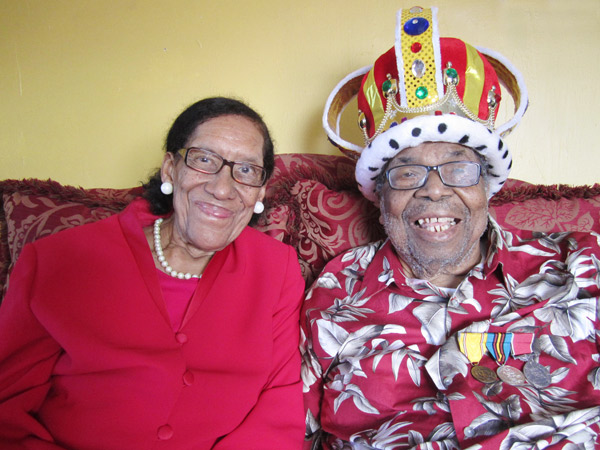 You woke up this morning, not that you really wanted to. It’s another day, and already you’re exhausted without rolling over yet. Sure the sun is shining outside, but all you see is gray. Heartache and stress hit you as soon as you open your eyes. You don’t want to face another day, but you’ve got to pretend – people are depending on you and there is no way you can let them know how much you’re hurting inside. You can’t afford to break down in front of anyone – they will think you are weak or worse, crazy.
You woke up this morning, not that you really wanted to. It’s another day, and already you’re exhausted without rolling over yet. Sure the sun is shining outside, but all you see is gray. Heartache and stress hit you as soon as you open your eyes. You don’t want to face another day, but you’ve got to pretend – people are depending on you and there is no way you can let them know how much you’re hurting inside. You can’t afford to break down in front of anyone – they will think you are weak or worse, crazy.
Someone tells you to snap out of it or have some faith. You really want to tell them to shut up, because they don’t know what they are talking about and they probably wouldn’t understand anyway even if you tried to explain it. That’s why you don’t say anything to people about how you really feel. When they ask how you are doing, it’s easier to just say, “I’m okay”.
Friends want to go out to take your mind off things. It’s nothing personal, but you don’t want to be around people, you just want to be alone. Besides, the things you used to enjoy doing don’t bring you pleasure anymore. It takes too much energy to fake it, and at this point you’re just praying nothing else goes wrong in your world because you just can’t take it.
It’s nighttime again. This is the time you dread. You’re faking it and barely trying to hold it together for everyone around you. You go in the bathroom to cry or wait until everyone is asleep so they don’t see or hear you. God doesn’t seem to listen to your prayers anymore. You’re tired – tired of fighting, tired of being sick, tired of hurting. Nothing helps. It’s like quicksand, you’re sinking deeper and deeper and nothing anyone says is lifting you up.
Every moment of the day you are on the verge of either tears or anger. You can’t even pray anymore. You begin to feel that if you end it all, the pain will finally be over. You think people won’t care much if you do it anyway, since as they say, life goes on. But life for you is now just one endless cycle of trying to decide how to end life’s pain and struggles. You don’t see how it will get better, and at this point, after all the hurt, pain and stress, the only thing that seems better is if you are gone.
If you can relate to this and have been able to relate to it for some time, then you most probably are suffering from major depression – a true and actual medical condition – not just an emotion that you can “snap out of” at will.
And if you just read this and are stunned by how dark and sad it sounds, you have just been given a look into the world of those in psychological and/or emotional distress – and it’s time to put away your many uninformed ideas and get educated about this struggle – a struggle that can become anyone’s struggle no matter how religious, rich, educated, beautiful, talented or powerful you are. No one is immune to mental illness, because mental illness is not about being weak, dumb or lacking faith in God – it is an actual medical condition that any human being can experience.
What Is Mental Illness?
When we hear the words “mental illness”, all kinds of negative images come into our mind. We look at mental illness as something embarrassing, shameful, something no one should want to admit to anyone. If we hear a person has been to a facility like Sandilands, they are marked for life as being “crazy”. We as Bahamians are not unique in these mindsets, but we need to know that these mindsets are rooted primarily in ignorance, and these mindsets are the key things hindering people from seeking the help they need.
As of this moment, the end to the stigma can begin with you by accepting this truth – mental illness is not a bad thing, being ignorant and prejudice about mental illness is the bad thing.
A mental illness is a medical condition that disrupts a person’s thinking, feeling, mood, ability to relate to others and daily functioning – it is as simple as that. Just as diabetes is a disorder of the pancreas, mental illnesses are medical conditions that often result in a diminished capacity for coping with the ordinary demands of life.
And this is where people miss the boat, because we believe that since the mind is primarily involved, the condition is “not real”, and that the person can simply change their mindset and hence their condition if they really want to. If you think that, you are wrong – no matter how wise you think you are, or what your pastor or anyone else tells you. And I stress pastors because many evangelical churches strongly push the notion that depression is either a “demon” or the result of “lack of faith” or some “sin” in a person’s life. What different religious groups choose to believe is their choice and right, but if they are pushing these arguments on people who need help, they are dead wrong.
The World Health Organisation (WHO) in its 2011 Mental Health Atlas says one in four persons will develop some form of mental illness at some point in their life.
Serious mental illnesses include major depression, schizophrenia, bipolar disorder and posttraumatic stress disorder (PTSD). Mental illnesses are treatable, and the most common of mental illnesses worldwide is major depression.
What is key for Bahamians to understand is this – major depression is different from just being sad about a situation. Sadness is an emotion or feeling that typically passes when situations change. Depression is a condition that can occur even when things are seemingly going well, and can change the way a person is able to respond to or view things.
What major depression can do in many cases is cause a person’s thinking processes in the brain to change. So while you may be thinking it is common sense for the person to be able to see that life will get better, the person may literally be incapable of seeing things that way without professional help. It is not that they don’t want to see it that way – they cannot see it that way, just as a blind person cannot see and a deaf person cannot hear.
This is a reality that people stubbornly refuse to accept about depression, and as such, they make it impossible to be of help to those they love.
Most people diagnosed with a serious mental illness can experience relief from their symptoms by actively participating in their treatment plan. Not everyone who suffers from a mental illness will ultimately commit suicide. But without help, suicide is a possible outcome for persons unable to cope with their struggles.
Professional Help for Mental Illness
The WHO points out that the gap between what is needed for mental health care and what is available remains very large. Most countries, it says, are investing far too little on mental health. The Organisation reports that most low and middle-income countries spend less than 2% of their budget on mental health.
The Public Hospitals Authority (PHA) was allocated approximately $199.1 million in the 2012/2013 budget. Of that, about $27.2 million ($22.3 million of which is for salaries) is allocated to Sandilands Rehabilitation Centre. That accounts 13.7% of the PHA’s budget, but since Sandilands does not only provide mental healthcare but also geriatric care and rehab services, it is unclear then how much of that allocation is weighted specifically toward mental health.
The WHO meantime highlights that a severe shortage worldwide of qualified and skilled experts to deal with mental health needs exists. It has however, implemented a plan to assist – its Mental Health Gap Action Programme. The programme provides technical assistance to low and middle-income countries to train their general doctors, nurses and health workers to identify and treat priority disorders. This is a programme The Bahamas ought to have already taken full advantage of from the WHO if it has not already done so.
The government should report to us on whether the country has done so, as well as on what our mental health resources and statistics are both public and private, so Bahamians understand where we stand in terms of being able to manage our mental healthcare needs.
There is not a mental health professional that would disagree that our Mental Health Act is in need of radical amendments to bring it in line with modern-day knowledge and realities about mental health. This is not something successive governments have seriously focused on, but it needs to be a top priority if we are to begin to improve the resources our people need.
Mental health now needs to become as important a resource-based focus and subject of educational campaigns as chronic illnesses like diabetes and high blood pressure, and as diseases like HIV/AIDS.
How To Know That You Need Help
If you are having the following issues and have been having them for some time, you should speak to a doctor who can give you proper advice and/or care: you can’t sleep or you sleep too much; you can’t concentrate or find that previously easy tasks are now difficult; you feel hopeless and helpless; you can’t control your negative thoughts of guilt or shame or self-hate, no matter how much you try; you have lost your appetite or you can’t stop eating; you are much more irritable, short-tempered, or aggressive than usual; you’re consuming more alcohol than normal or engaging in other reckless behavior; you have thoughts that life is not worth living or you want to kill yourself.
Opening up to someone you trust can also be a first step to getting the help you need. As you open up you may begin to be better, but if not, do not consider yourself a failure because you need professional help. You are not a failure.
How Can I Help Someone I Know?
1. Stop being judgmental. A person who is struggling does not need your judgment and criticism – they need your love, support, a listening ear and a shoulder to cry on if need be. Talk to professionals you know about what is happening and what help the person may need.
2. Do not isolate the person. Sometimes we feel that if we leave the person alone or give them their space, they will get better in time. That is the exactly wrong thing to do. You can never go wrong by letting a person know you care and that you are not only there for them in word, but in reality. If you distance yourself or act differently toward them, it will only further deepen their view that life is not worth living and that nobody cares, especially if you are an important part of their life.
3. This is the age of information. Go online and read up on mental illnesses like depression so you can get a better understanding of how to be of help to someone you love.
4. Stop telling the person to “snap out of it”. It is entirely the wrong thing to do whether you mean well or not. Remember that what the person may be struggling with is a condition – approach the matter in that way.
5. Encourage faith-based support – but be careful in doing so. If a pastor or church does not understand mental illness, they can cause more harm than good by adding to a person’s already uncontrollable feelings of guilt, shame or fear that accompany conditions like major depression.
6. If a person is talking about suicide, always take them absolutely seriously. It is not true that persons only talk about suicide for attention or just as a cry for help with no intention of killing themselves. Statistically, people who begin talking about ending their life will likely attempt or do so at some stage if they do not get help. And it is also not true that asking someone if they are considering suicide is putting the idea in their head. If they are suffering from major depression, they most likely have already had those thoughts. If you fear they may be having those thoughts but they won’t say so on their own – ask them. The answer could help to save their life.
Conditions like major depression do not have to be the end of a person – one can get help and can live a productive life. These conditions also do not have to be permanent for everyone. Medications may become necessary, and there is absolutely nothing wrong with that if needed. For conditions like major depression, medication along with talk therapy provides the highest rates of success for many.
A person is not weak if they need medication for a medical condition. Do we scorn people for taking pills to control their diabetes and high blood pressure? Then why are we scorning people for taking pills to control major depression, or bi-polar disorder? Where medication is needed, it should be taken and be available to those in need.
And if you are reading this and you are struggling right now – you are not crazy. You are not weak. You are not ignorant. You are not a failure. You are human. We all need help along the way, whether we admit to it or not. Do not let fear, shame or anyone’s ignorance stop you from seeking help.
My hope is that Bahamians will get the facts about suicide and mental illness and get past their prejudices and pre-conceived notions. And my prayer is that together as a nation, we can begin to change the way we treat others and the way we treat ourselves, and that we will place the focus on mental health that is desperately needed in our country.
Tribune Column By Sharon Turner



